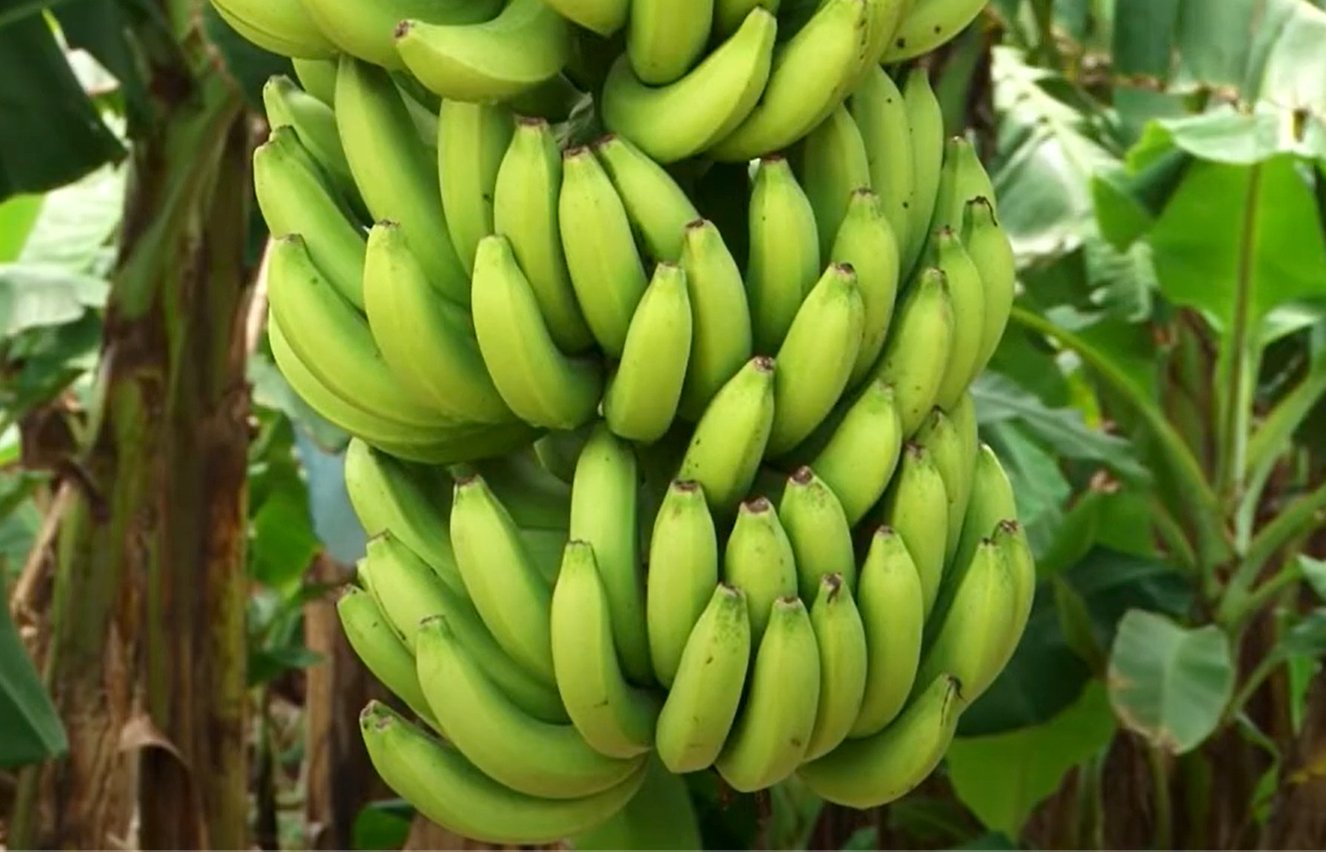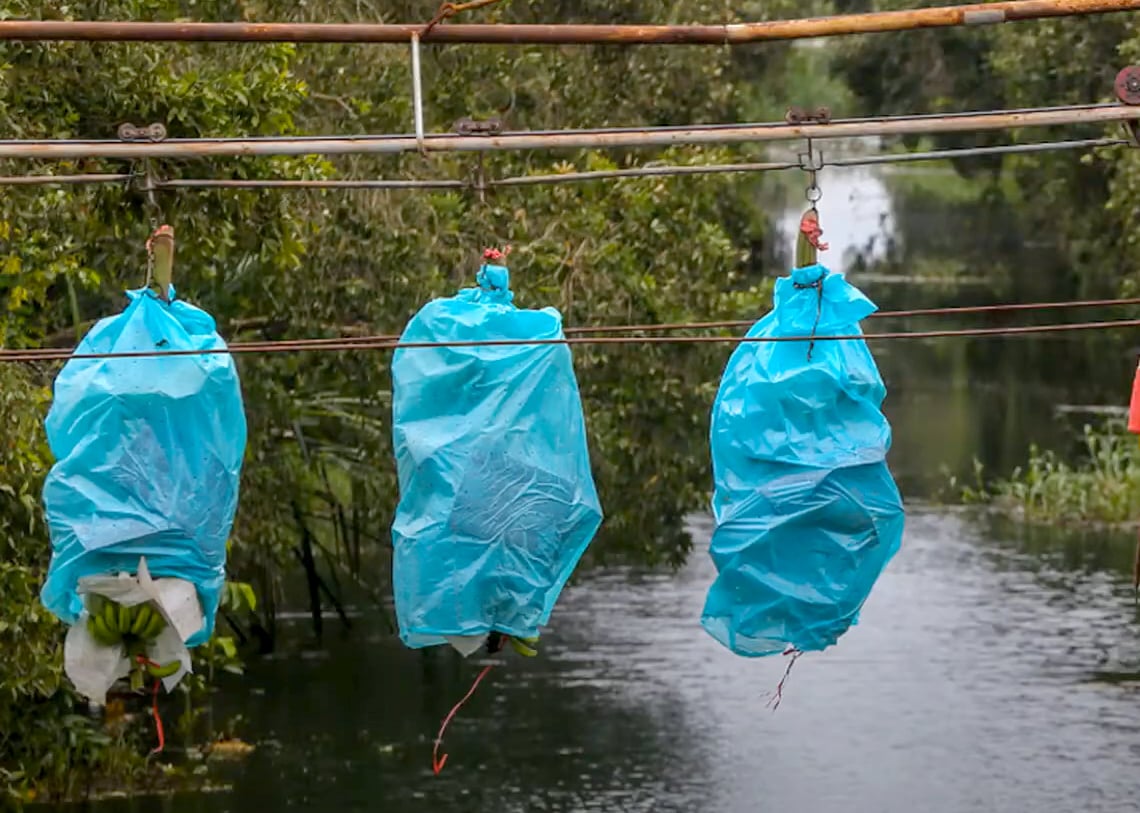May 18, 2025 | 07:40 GMT +7
May 18, 2025 | 07:40 GMT +7
Hotline: 0913.378.918
May 18, 2025 | 07:40 GMT +7
Hotline: 0913.378.918

Bananas grown on a farm belonging to Huy Long An Company in Duc Hue District, Long An province. Photo: Son Trang.
According to the Agency of Foreign Trade under the Ministry of Industry and Trade of Vietnam, Vietnamese banana exports to Japan are experiencing strong growth in 2023. The Customs and Tariff Bureau of Japan reported that Vietnamese banana exports to Japan reached 7.9 thousand tons in the first seven months of 2023, which is valued at 1.05 billion yen or 7.1 million USD. This is an increase of 62% in volume and 80.2% in value compared to the same period in 2022.
In addition to increasing banana imports from Vietnam, Japan has reduced its banana imports from the Philippines. Accordingly, nearly 485 thousand tons of Philippine bananas were imported into Japan in the first seven months of 2023, which is a decrease of 2% in volume compared to the same period in 2022.
Despite the decline, the Philippines remains as the main supplier of bananas to Japan, accounting for 79.8% of the latter's banana imports. Due to its geographical proximity to Japan, the transportation time from the Philippines to Japan is shorter compared to that of other supply sources. As a result, the Philippines has an advantage in managing the ripening and distribution process to meet the daily demands of Japanese retailers and consumers.
On the other hand, many Japanese importers are gravitating towards increasing their purchases of bananas from Vietnam. The Vietnamese Trade Office in Japan reported that several consumer systems in Japan are looking to import bananas from Vietnam as a replacement to Philippine products because many Japanese consumers prefer the taste of Vietnamese bananas.
In comparison to the Philippines, Vietnamese banana exports to Japan, although disadvantaged in terms of geographical proximity, benefit in terms of tariffs. Under the Philippines-Japan Economic Partnership Agreement (PJEPA), Philippine bananas imported into Japan are subject to an average annual tariff of 13%, ranging from a peak of 18% in the winter months to a minimum of 8% in the summer. The Philippines is the only Southeast Asian country which is subject to a high tariff level. Conversely, other suppliers in the region enjoy preferential tariffs when exporting to Japan. Most notably, Vietnam currently enjoys a 0% tariff rate for banana exports to Japan under the ASEAN-Japan Comprehensive Economic Partnership Agreement (AJCEP) which is effective from April 1, 2023. Vietnam was previously subject to a tariff rate of 3%.

Banana transportation on a farm in Long An province. Photo: Son Trang.
Several Vietnamese banana exporters have reported that Japanese importers are seeking to purchase organic products. According to Mr. Vo Quan Huy, Director of Huy Long An Company in Duc Hue District, Long An province, a number of Japanese importers have expressed interest in purchasing organic bananas from Vietnam in large quantities. However, Huy Long An Company has refrained from accepting these orders as there are several untreated diseases on the banana plants that cannot be effectively addressed using organic methods. Consequently, the company has not been able to organize organic-certified banana production on a large scale to meet the requirements of export orders to Japan and other demanding markets.
Although Vietnamese banana imports to Japan are growing rapidly, they still only account for 1.3% of the total banana imports into Japan in the first seven months of 2022. As a result, the Agency of Foreign Trade of Vietnam suggested that there are potentials for Vietnamese banana exporters to expand their market share in Japan. Vietnam is currently the fifth largest banana supplier to the Japanese market, following the Philippines, Ecuador, Mexico, and Guatemala. Among the top five largest suppliers to the Japanese market, Vietnam is experiencing the highest growth rate, followed by Guatemala. Conversely, Japan has reduced its imports from the remaining three countries in the first seven months of 2023.
Banana is currently one of Vietnam's most prominent export products. Namely, Vietnamese banana exports reached a turnover of 311 million USD in 2022, ranking third after dragon fruit at 632 million USD and longan at 420 million USD. In addition to Japan, Vietnamese bananas are exported to other markets around the world including China, South Korea, the European Union, and Malaysia.
Furthermore, bananas feature one of the largest production areas and yields in Vietnam. Accordingly, the total banana production area nationwide in 2021 was 154 thousand hectares, with a total yield of 2.3 million tons.
Translated by Nguyen Hai Long

(VAN) In the face of counterfeit and imitation products, Khanh Hoa Salanganes Nest Company hopes for the prompt completion of the legal framework, strict enforcement against violations, and protection of the bird’s nest brand.

(VAN) Japan's efforts to lower the price of rice through the release of its stockpile may finally be making some progress, albeit at a snail's pace.

(VAN) U.S. tariffs are not only a 'shock', but also an opportunity for Vietnamese businesses to renew their mindset toward comprehensive development.

(VAN) As Bac Giang lychee enters the harvest season, Minister Do Duc Duy expects that the fruit will contribute greatly to agricultural exports due to standardized production and deep processing.

(VAN) Consumers have shown a preference for free-range eggs, but those farming systems are more vulnerable to biosecurity risks like bird flu.
/2025/05/09/5701-1-184335_301.jpg)
(VAN) Vietnam’s eel exports nearly doubled thanks to a mud-free farming model, opening up new prospects while still facing numerous barriers related to international standards.

(VAN) Minister Do Duc Duy warned that if production is not professionalized and supply chains are not transparent, the U.S. market could become a growth bottleneck.